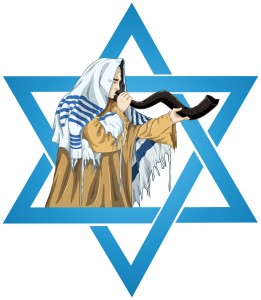As was said at the beginning, human geography is the study of human populations within a spatial cultural-religious, economic, political and military setting. And physical geography takes account of climatic and natural landscapes. Ancient Egypt had a fertile climate that was very stable and not so prone to invasion. Ancient Israel had a desert like climate around Judah and was prone to invasion (because it was right next to ancient Egypt) Mesopotamia had a fertile climate but the weather was unpredictable and was prone to invasion. Could these geographical features have influenced the way these cultures perceived their kingship and the divine? You decide.
Kingship in the ancient middle east was divided up into categories. In Egypt the Pharaoh was reincarnated into a human body. In Mesopotamia the King was chosen by the Gods but was not divine. These Kings were chosen when Egypt and Mesopotamia were fully developed states. Another kind of Kingship was based on heredity and was formed when the people were still tribal and nomadic. The Hebrews first King was Saul. He was anointed by Samuel when the Israelite’ s were still a collection of tribes. But against Samuel’s wishes thinking the Lord would not hear them if they had a King. We read in (1st Sam:8:19-20) ” Nevertheless the people refused to obey the voice of Samuel and they said, Nay but we will have a king over us. That we may be like all the nations and that our king may judge us and fight our battles.” The battles that needed to be fought were against the Philistines and the Amorites when these peoples became too much of a threat. The Hebrew people more like the Mesopotamian’s than the Egyptians did not need a king to form a connection between themselves and the divine. In (Exodus 19:5-6) we read “now therefore if you will obey my voice and keep my covenant then you shall be a peculiar treasure unto me above all people, for all earth is mine and you shall be unto me a nation of priests and a holy nation.” Service to God was paramount to the covenant and it imposes a moral obligation that could come into conflict with perhaps the moral inequity of a king.
Saul was anointed with Yahweh’s blessing but the unfortunate events of Saul “then said Saul unto his armor bearer Draw thy sword and thrust me through there within lest these But his armor bearer would not because he was sore afraid therefore Saul took a sword and fell upon it” (1st Sam 31:4). must have instilled a sense in the lsraelites that Yahweh’s anointing of officials provided little protection against tragedy. Not only did the covenant stifle loyalty to the King but the fact that tribal loyalty is loyalty by blood. And this loyalty developed after the Exodus during the long period of Judges came above all others. So when the Israelites moved from a bunch of tribes to a chiefdom under Saul it was hard for him to compete with the loyalty they had for each other. We also see this in the time of Rehoboam, Solomon’s son. Because of Solomon’s lavish spending on public works a lot of tribes especially in the north refused to be loyal to him even though he was David’s grandson. And David was Yahweh’s favourite. We read in (1st Kings 12:16) “So when all Israel saw that the King hearkened not unto them the people answered the King saying, What portion have we in David? Neither have we inheritance in the son of Jesse to your tents O Israel. Now see to thine own house David. So Israel departed unto their tents.”
The Hebrew kingship compared with other middle eastern royalty especially Egyptian and Mesopotamia seemed to be less sacred. The king made the religion happen. He more functioned in the mundane not the divine. He functioned as a political, military, and judicial leader. David’s ability to raise an army because of his following made Jerusalem his capital and henceforth brought the Art of the Covenant. Solomon’s trading diplomacy and and political ability brought forth wealth which enabled him to construct a temple to Yahweh. But the control of sacrifice and divination was all done by the priests. The kingship gave the religion a sense of legal protection. But sometimes this was a double edged sword because prophets could have had a vision of Yahweh’s will which could have lead into a direct conflict with the state.
